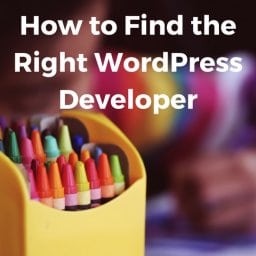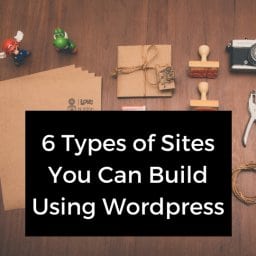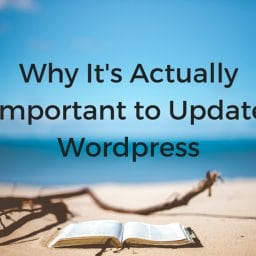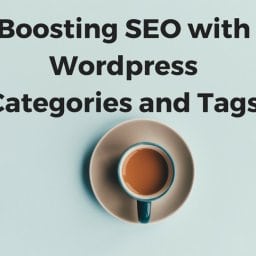Almost everywhere you look someone is talking about or calling themselves either a web designer or web developer. But what does it all really mean?
How can you tell whether someone is a designer, developer, a combination of the two, or something in-between?
While this can be a topic of hot debate, this will hopefully provide a reference or even be food for thought for those who are looking for WordPress-related jobs or those who are looking to staff WordPress Professionals.
WordPress Implementer
So what do you call someone who does great work with WordPress and is relatively comfortable taking mocks and converting the designs into themes, and then using plugins to fill in the gaps of functionality that a site needs, but he can’t build.
We call this a WordPress Implementer. They aren’t programmers or developers, but something in-between. This is not a good thing, this is not a bad thing – this is simply nature of the beast, so to speak.
A great implementor knows WordPress. He/she knows and keeps current with news and developments within the community, what themes and plugins are available and what differentiates one from another.
By our industry standards, most people would probably argue that an implementer is a developer, but if you’re truly looking for someone based on a set of skills, then there are qualifiers that exist – there are things that differentiate us from one another. Although not technically a developer or designer, that doesn’t mean this WordPress professional isn’t a force to be reckoned with. Someone working in this category will probably have some rudimentary knowledge of design principles, HTML, CSS and maybe even a little PHP.
But how does this different from a designer?
WordPress Designer
If you’re building a custom WordPress website, the first step is usually to figure out exactly what it’s going to look like. Designers are typically masters when it comes to working with:
- Photoshop
- Fireworks
- Illustrator
- WordPress
It also not uncommon for designers to have a little or even extensive knowledge of HTML and CSS. This means that a designer can help you create the overall look and feel of your website and is great using site architecture, layout, colors, fonts, design elements and more.
Once they’ve finished designing your website, the Photoshop files are typically handed off to a developer for coding. If you’re working with a pre-made theme, a designer can help you change some of the specific design elements in order to customize your site.
So what’s a developer?
WordPress Developer
Good WordPress developers are in high demand. Finding one who has time available to handle your project is not always an easy task but that depends largely on the size and complexity of your project. An individual who considers themselves to be a developer will usually have skills that include:
- An in-depth knowledge of WordPress core, themes and possibly plugins
- PHP
- HTML
- CSS
- JAVA
- JQUERY
- MYSQL
Once a developer receives the Photoshop files from the designer, they can get started coding the website. The developer’s job is essentially to take a visual representation of your site and turn it into a functional and fully-interactive website.
Developers are technically capable of building anything from scratch, but they should be also adequate enough to decide when to customize an existing solution and when to build something from ground zero.
Sometimes, although not always, you might find a front-end developer being brought into a project in order to help with a specific part of the development: Those aspects that visitors directly interact with such as menus, sliders, and portfolios. Front-end developers might specialize in HTML, CSS, Javascript, and JQuery.
Developer-Designer Hybrid
This is actually more common that you might imagine – especially on smaller projects that are typical of a small to medium size business. If you’re a business owner who is looking for a custom website or if you want to have a template customized, chances are you’ll end up working with someone who has a mix of both design and development skills. It’s also pretty common for a designer-developer hybrid to bring in some outside help for areas of a project that might be beyond their skill level although there are certainly times when this isn’t required.
From a business standpoint, it may look as if it’s a better business decision to hire an implementer. You can still get good work, probably faster, and cheaper. If you hire a programmer, the work will take longer, and be more expensive (after all, time is money, as they say). And in some cases, that’s true and perfectly legit.
There’s such a variety of work that people do within the context of WordPress that I think there’s far more to it than just designers, developers, and implementers. Ultimately, whatever you opt to choose largely depends on your budget and perhaps how flexible (or how “custom”) you want you solution to be.
















